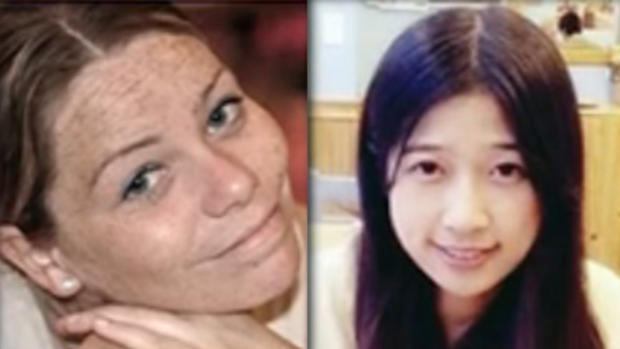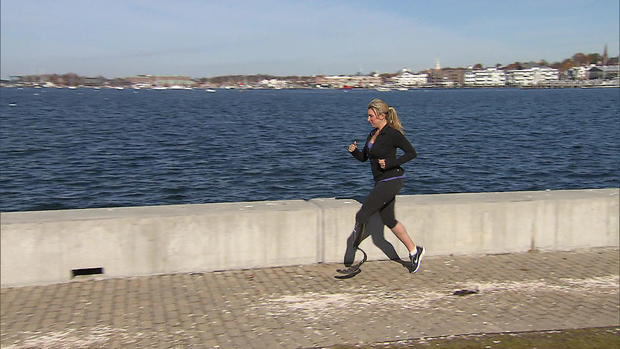After the Boston bombings, a silent injury emerges
BOSTON -- When watching Heather Abbott work out, you'd never suspect she's wearing a prosthetic; she lost her left leg in the Boston Marathon bombing. But another injury of hers is even easier to hide.
"I struggle to hear what people are saying," said Abbott. "And sometimes I'll ask them to repeat themselves so many times that I just pretend I've heard at a certain point."
Abbott is among the more than 100 bombing survivors who suffered an ear injury or hearing loss. Many are taking part in a 3-year study at the Massachusetts Eye and Ear Infirmary. Lead researcher Dr. Alicia Quesnel says past research focused solely on soldiers injured on the battlefield, not civilians.
"This was, of course, in a crowded group of spectators who weren't wearing headgear or helmets and so thinking about that in terms of blast mechanics, and how pressure waves ricochet off of buildings, surroundings are very important in terms of how much damage is actually done," explained Dr. Quesnel.
Now halfway through, this research has found how damaging this type of explosion can be on hearing. People within 1,000 feet of either blast reported hearing loss, ringing in the ears and imbalance, problems which persist today.
Ninety percent patients hospitalized for other injuries also had ruptured eardrums and about 30 percent of patients who didn't have symptoms at first, developed them within the last two years. Doctors worry even more people will come forward.
It took a year for Heather Abbott's ruptured ear drum to heal enough for her to get hearing aids. Heather says the aids allow her to hear voices louder and clearer.
"It's interesting how much I wasn't hearing that I didn't realize," Abbott said.
Abbott hopes this research advances the use of technology for hearing loss the same way other research gave way to the prosthetic that's allowed her to run again. She has started a foundation to help other victims of traumatic incidents obtain prosthetics.

